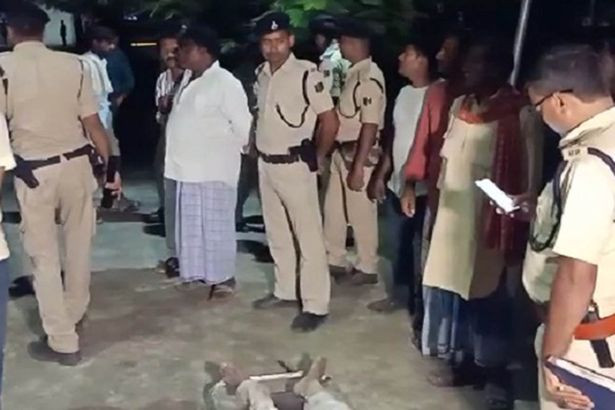A religious celebration was marred by tragedy this week as a man participating in a traditional Islamic mourning ritual accidentally beheaded himself.
Mohammed Sayum was displaying his prowess at swordsmanship in the Nalanda district of Bihar, in east India, as part of a ritual procession known as the Mourning of Muharram. According to reports, Sayum, 60, accidentally cut his own neck and was rushed to Sadar Hospital, but died from loss of blood before he arrived.
The accident sparked chaos in the area, according to the news site Swarajya, where hundreds of others were also observing the ritual procession. Sayum’s son, Mohammad Feroz, told police he witnessed the incident.
Police in Bihar are still investigating and sent Sayum’s body for an autopsy.
Muharram is considered one of the most sacred months of the Islamic calendar. The Mourning of Muharram, or Muharram Observances, is a commemoration honoring the death of Imam Hussain Ali, grandson of the Prophet Muhammad and third Imam of the Shi’ite community, who was killed by the Caliph Yazid’s army in 680 AD at the battle of Karbala. For Shi’ite Muslims, Imam Hussain’s death is symbolic of the struggle against tyranny and injustice.
Observances of the Muharram procession vary, but traditionally involve a march from the Hussainia (congregation hall) into the streets, where participants light bonfires and partake in acts of self-flagellation, cutting, chest-beating and face-slapping. Some devotees visit the shrine to Imam Hussain in Karbala in modern-day Iraq.
Fatal accidents and violence have long plagued Muharram commemorations: On Tuesday, at least 31 people were killed in a stampede in Karbala, with 100 more injured. According to the AP, the stampede started when a walkway collapsed.
The same day, 20 people were injured watching a Muharram procession in Andhra Pradesh, in southeast India, when the roof they were standing on collapsed at about 2 a.m. Police report the victims were viewing the Pedda Saragathi ritual, where devotees walk on a hot bed of coals.
Also on Tuesday, a man in Uttar Pradesh was electrocuted, and others wounded, when a tazia they were carrying came in contact with a live electrical wire. A tazia is a replica of Imam Hussain’s tomb, carried during Muharram processions.
Days earlier, at least four people died in Karachi, Pakistan, when a tazia collided with overhead electrical cables. The incident happened on Saturday, in the Bhittaiabad neighbourhood of Gulistan-e-Jauhar.
In 2004, bombings at shrines in Karbala and Baghdad during the Day of Ashura, the tenth day of Muharram and the focal day for mourning, killed 140 people. (The Nation/Newsnow.co.uk)














